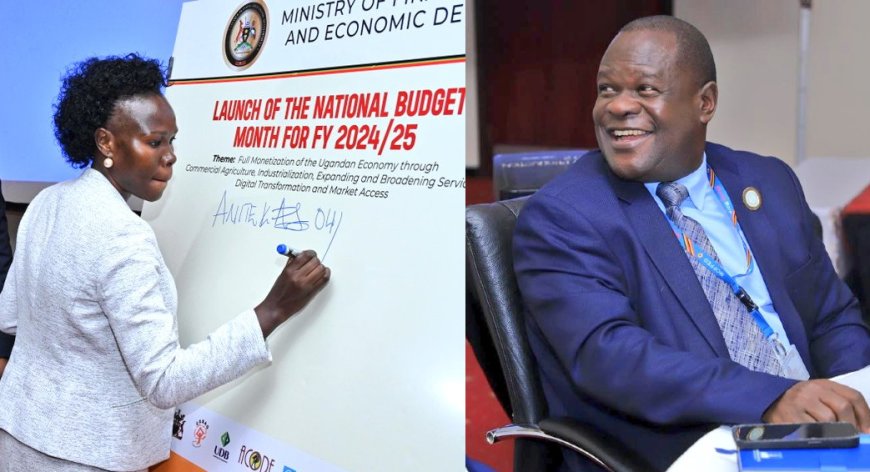National Budget Month for FY 2024/25 Launched, DST Patrick Ocailap Breakdown Key Priorities.

On Tuesday 5th June 2024, The Ministry of Finance, Planning and Economic Development launched the National Budget Month for FY 2024/25 together with the Open Budget Survey Report 2023, aimed at improving engagement with the citizens, accountability, and service delivery in the country through several activities that been lined up during this season.
Various experts and economists have broken down the National Budget for FY 2024/25 for citizens and stakeholders to understand it better.
The State Minister of Finance for Investment and Privatization Hon. Evelyn Anite who officiated the launch outlined several key initiatives within the financial year 2024/25 budget designed to enhance public sector integrity, including the strengthening of anti-corruption agencies, the introduction of more robust financial oversight mechanisms, and the promotion of digital transparency tools.
The Deputy Secretary to the Treasury Mr. Patrick Ocailap during an interview at the sidelines of the launch held at Serena Hotel, took some time to break down the budget highlights pointing out key priorities and allocations for various sectors.
He said that Parliament passed the national budget for the Financial Year 2024/2025, approving a total expenditure of Shs72.136 trillion, which reflects a significant increase of Shs14.050 trillion from the initial budget proposal of Shs58.34 trillion.
“Next financial year, a budget of Shs72.136 trillion has been approved towards key priority areas of Agriculture industrialization, Tourism, Mineral Development oil including oil and gas, Science Technology and Innovation to create opportunities for investment and value addition for income generation,” he told the media in an interview.

DST Patrick Ocailap during an interview on Tuesday at Serena Hotel
He said that human capital development emerged as the top priority, receiving Shs9.9 trillion representing 26.3% of the budget for investments in education, healthcare, and skills development.
"The value of a Ugandan is critical to growth in a competitive society. The key priorities of the budget include investing in the people of Uganda through human capital development. The data from UBOS will enhance better measurables” said
He added that Uganda can still pay the debt resource envelope in the budget, especially for both external debt and domestic debt.
The budget highlights for Uganda’s debt indicate that “Shs3.1 trillion is allocated for external debt repayment, Shs9.5 trillion for project support, Shs12 trillion for domestic refinancing, Shs9 trillion for interest payments, Shs293.9 billion for appropriation in aid, Shs603 billion for Bank of Uganda recapitalization, Shs200 billion for domestic arrears, and Shs9.1 trillion for domestic debt repayment under Bank of Uganda”
Other key allocations include; governance and security were allocated Shs9.1 trillion (24.2 percent of the budget) to bolster law enforcement and national security measures. Additional allocations include Shs5.1 trillion for integrated transport infrastructure and services, Shs2.3 trillion for development plan implementation, and Shs2.0 trillion for private sector development.
Significant investments were also directed towards key sectors and initiatives, including sustainable energy development (Shs1.0533 trillion), administration of justice (Shs481.4 billion), legislation, oversight, and representation (Shs978.6












